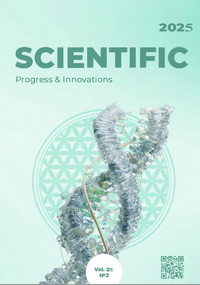Justification of the methodology of technical measurements with elements of mechatronics in biological processes
DOI:
https://doi.org/10.31210/spi2025.28.02.44Keywords:
measurement, temperature, energy, mechatronics, scientific research, experimental methodology, bread bakingAbstract
Researchers are faced with the challenge of selecting, among existing control and measuring devices, such modern measurement tools that meet the requirements of accuracy, data flow rate, and the ability to record information on data carriers for subsequent processing. This work presents a generalization and a new solution to the scientific problem, which consisted in the development and substantiation of a methodology for measuring technological parameters in scientific research of biological material processing using control and measuring devices built on mechatronic principles. The applicability of the proposed methodology was investigated through research into technological parameters (specifically, temperature in dough layers) during the preparation of bakery products. Technical recommendations were developed for the design of a reading-recording module and the potential for its use in studies of mass production technologies. An analysis of known temperature measuring instruments was conducted, and it was determined that strain gauge sensors are the most suitable for the conditions of our research. A five-channel reading and recording module was used in the experiment. Known bread baking technologies were analyzed, and measurement conditions and the required discreteness were substantiated. The temperature range during the process was between 30–160°C, with an adequate measurement discreteness of 1 second. An experimental research plan was developed, including procedures for measurements and ensuring their accuracy. Laboratory equipment was fabricated to determine temperature parameters in the bread baking process. Baking is accompanied by pulsed action of the heater, maintaining the bowl temperature within 35–150°C throughout kneading and baking. At the start of baking, the temperature at each measurement point changes according to specific patterns. In the 1 cm layer of dough, the temperature reaches 100±5°C and does not rise further, which is due to the formation of a crust with lower moisture content compared to the crumb. In deeper layers beyond 1 cm, the temperature stabilizes around 105±5°C and remains constant during the entire process. These values are conditioned by the specific thermodynamic behavior of the vapor-liquid phase of water present in the dough.
Downloads
Published
How to Cite
Issue
Section
License
Copyright (c) 2025 Scientific Progress & Innovations

This work is licensed under a Creative Commons Attribution 4.0 International License.

 Creative Commons Attribution 4.0 International Licens
Creative Commons Attribution 4.0 International Licens